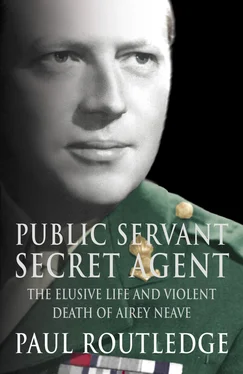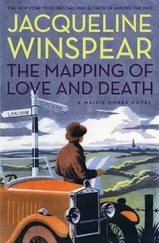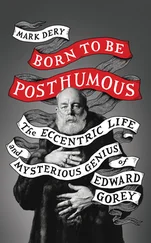The final obstacle was a high, moss-covered stone wall, overlaid with snow and ice. ‘Here, we made our first mistake,’ remembered Luteyn. ‘I helped Neave up with my hands so he could sit on it and pull me up. We should have done it the other way round, because I was much bigger and more powerful.’ 7 Every time Neave tried to pull his companion, he fell backwards in a confusion of snow and stone. Eventually, he caught Luteyn under the arms and they struggled to the top, panting heavily. They sat on the coping for a minute, then jumped 12 feet to the broken ground below. Neave was bruised, shaken and frightened. They leaned against the trees, breathing in the sharp, cold January air before Neave urged them on. They tore off their lovingly prepared fake uniforms and threw them into the river that wound its way below the woods.
In his diary entry for 5 January, Chaplain Platt recorded: ‘Anthony Neave and a Dutch officer, Second Lieutenant Luteyn, escaped ten minutes ago. It was a scheme requiring the boldest initiative and at least eight weeks’ preparation. It was carried out with the utmost secrecy, and already they are outside the castle.’ During 1941, only two British officers succeeded in getting clear of the castle, and they had both been recaptured. ‘The British are due for a success, and the seven people who so far know of Anthony’s break are fairly confident that this is it.’ 8
Clear of the castle, Neave and Luteyn set off to walk to the town of Leisnig, six miles away. They would be less noticeable in this manufacturing centre than in the town of Colditz, where they risked recognition. The plan was to take an early morning workmen’s train to Leipzig, thirty-five miles to the west. Thence, they would proceed south by train via Ulm and Nuremberg to Singen on the Swiss border, where they would walk to freedom. The imaginative Dutch had bribed a Colditz guard to secure a railway timetable, so the escapers knew that the first train left at 5.00 a.m. They thus had seven hours to kill in the freezing dark. Mercifully, although the thermometer read minus 17 degrees Celsius, the snow was abating and the moon aided their progress across frozen fields until they reached the country road to Leisnig. With rising confidence, they struck out for the station. Neave was dressed in a blue jacket. Fashioned from an officer’s uniform of the Chasseurs Alpins, this was the gift of Capitaine Boris, a Jewish reserve officer in the French regiment, in recognition of Neave’s support of the small Jewish contingent in Colditz. His RAF trousers were turned down over his Polish boots and the civilian guise was completed by a ski cap made from a blanket.
Конец ознакомительного фрагмента.
Текст предоставлен ООО «ЛитРес».
Прочитайте эту книгу целиком, купив полную легальную версию на ЛитРес.
Безопасно оплатить книгу можно банковской картой Visa, MasterCard, Maestro, со счета мобильного телефона, с платежного терминала, в салоне МТС или Связной, через PayPal, WebMoney, Яндекс.Деньги, QIWI Кошелек, бонусными картами или другим удобным Вам способом.












